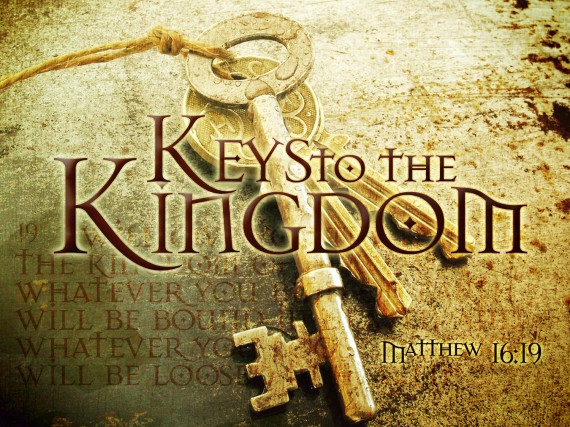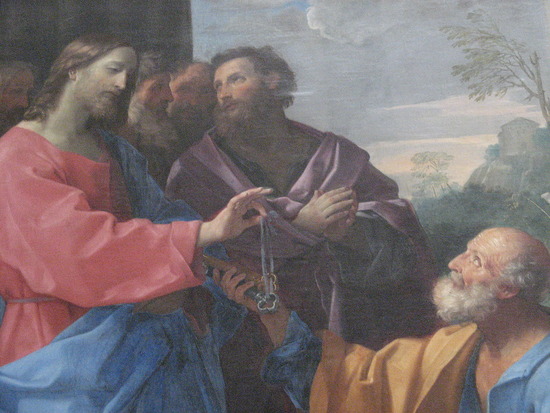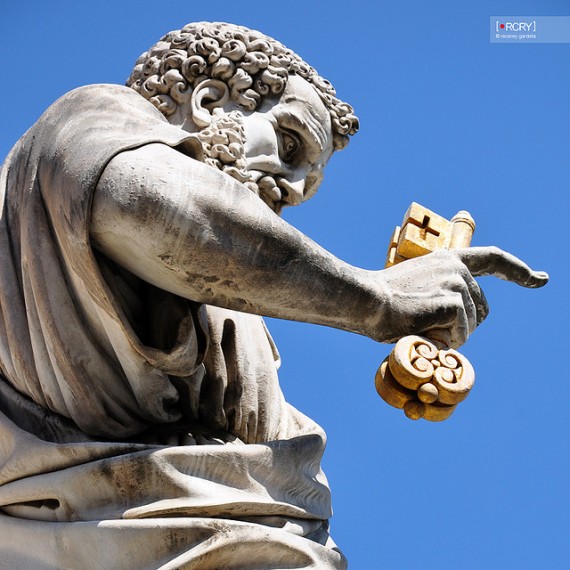Have you ever struggled with the topic of predestination? This study of Ephesians 1:5 will define predestination and will help you find great encouragement in the truth of predestination. We will also look at the current event topic of racism in a Bible College, and answer a question from a reader about the Parable of the Ten Talents.
Current Event: Theology Professor Asks God to Help her Hate White People
Chanequa Walker-Barnes is a theology professor at Mercer University, and she recently published a book titled A Rhythm of Prayer: A Collection of Meditations for Renewal. One chapter includes a prayer in which she says this:
Dear God, Please help me to hate White people. I want to stop caring about them, individually and collectively. I want to stop caring about their misguided, racist souls, to stop believing that they can be better, that they can stop being racist.
Later she writes:
Grant me a Get Out of Judgement Free card if I make White people the exception to your commandment to love our neighbors as we love ourselves.

And she is not alone. I see these sorts of statements and desires all over the internet from Liberals and Democrats who feel that white people and Trump voters are all racists who need to be wiped off the face of the earth. A Stanford university student recently called for the extermination of all white people.
Now, thankfully, Dr. Walker-Barnes recognizes that what she is praying for is sinful and is a complete violation of the instructions of Jesus to love your enemies (see my sermon on Luke 6:27), and so she prays that God will not condemn her to hell for such a desire. And of course, God does forgive her. There’s no question about that.
But what troubles me is that this sort of racist hate-speech is becoming more and more common from liberal leaders, and even from some pastors and Bible college professors. Worse yet, I have not heard a single liberal pastor or Christian denounce such hate speech. They either agree with such racist sentiments or explain them away as “understandable.”
I was recently having a conversation with a friend of mine who is a pastor and democrat, and who is also a strong believer in non-violence. But he shocked me in our conversation by saying that he would like to punch Nazis in the face and beat them until they can’t get up. I asked him who the Nazis were, and he said, “Anyone who voted for Trump.”
This is what many liberals believe, including may liberal Christians. This sort of thinking is not only destructive to our country and the world, but also to the cause of the gospel.
Look, racism is evil. I condemn and denounce all racism, wherever it is found, and from whomever it comes, because God is against racism as well. Those Christians who condemn racism from white people, but excuse racism from others do not understand the gospel and do not understand why Jesus came to this earth. Jesus came to show us how to love, forgive, and accept all people … including our enemies … and if we do not follow Jesus in these ways, then we are not following Jesus at all.
I am currently reading a fantastic book on these issues, and I highly encourage everyone to read it. It’s by Voddie Baucham, Jr. and is titled (#AmazonAdLink) Fault Lines. I love this book so much, I will be talking about it next time in the “Current Events” portion of this podcast.
Q&A: Is Jesus the Master in the Parable of Talents or not?
A super alert reader recently sent me this question:
Thank you so much for sharing your heart and truths you have studied-it has helped me on my journey!
So the other day I was reading your post about the parable of the 10 Talents and how the master was NOT Jesus.
Yet, today I was reading in Luke about Jesus’ triumphal” entry and read your post in which you state that Jesus IS the master going to the far off country.
Which is it? Thanks for clearing this up for me in advance!
GREAT question! (And very impressive that you found this!)
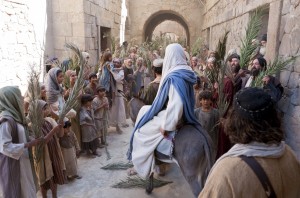 The Triumphal Entry sermon was first taught nearly twenty years ago … and the explanation on the ten talents was within the last year, so the contradiction here just shows a progression in my thinking…
The Triumphal Entry sermon was first taught nearly twenty years ago … and the explanation on the ten talents was within the last year, so the contradiction here just shows a progression in my thinking…
I would argue now that in the Triumphal Entry, Jesus didn’t go to a far country, but just to Jerusalem. And there, we see how the kingdoms of this world treat people who do not play by their rules. So the Triumphal Entry does show an example of the parable of the ten talents, but it is an example of the third servant who is condemned by the earthly master…
(I have updated the older sermon to match this… thanks for pointing it out!)
What is Predestination? (Ephesians 1:5a)
The first time I preached a sermon on Ephesians 1:5 was over 20 years ago. I was a young pastor in my first church. As I began to explain what I am going to share with you in this study, one of the elders in my church stood up and loudly said to his family, “Come on. We’re leaving!” He and his family filed out of their row, out the back of the church, and never returned. I later called him to find out why he left, and he accused me of being a heretic.
The reason he thought I was a heretic was because he was a Calvinist and he disagreed with what I was saying about predestination.
If you don’t know what Calvinism is, that’s okay. But if you do know, then you know that certain views of election and predestination are central to the doctrines of Calvinism. I used to be a 5-point Calvinist, but then I started really studying the issues from a biblical perspective, and ended up rejecting all five points of Calvinism. The sermon I preached on Ephesians 1:5 was near the beginning of that process. The elder in my church did not like what I said, and so he left the church and never came back.

So now you get to hear what I taught, and I encourage you to study the Scripture for yourself to see what they have to say about predestination. Here is the part of Ephesians 1:5 we are looking at in this study:
Epehsians 1:5a. In love He predestined us …
Ephesians 1:4 was a key verse on election. Ephesians 1:5 is a key verse on predestination. They are similar ideas, but with one key difference.
Election has to do with God’s people, predestination deals with God’s purposes. Election is the who; predestination is the what, and specifically, what God is going to do for believers in eternity.
Now, a lot of people get pretty nervous about predestination. They are afraid about it, because they wonder if they are predestined or not. But this fear just shows that they have a misunderstanding about election, for we see right from the start of Ephesians 1:5 that although some people are scared of predestination, they should not be – for whatever predestination is, it begins with the love of God. And since predestination is founded upon the love of God, when it is properly understood, it will not lead anyone to fear.
So what is predestination? Let us begin with defining it. To define it, you can take the word and cut it in two. Pre means “before” or “previously” and destined means “to decide.” So the word predestined means to previously decide, or to decide beforehand.
From the Greek, it literally means “to mark out beforehand.”
All of us predestine things every day. If we are thinking ahead, we are king of deciding beforehand what we will do in a certain situation. Have you ever thought about what you would do if you won a million dollars? If so, you have predestined the million dollars. Have you ever thought about what you might do when you retire? If so, you have predestined your retirement.
As young parents begin to have children, they often predestine certain things about their child. If they learn the sex of the baby, they predestine the child’s name. They might also predestine the room the baby sleeps in, the clothes the baby wears, and what sort of schedule they will try to keep with the new baby.
Of course, with humans, even though we decide things, that does not guarantee that it will happen, because we are not in control of everything. But God is all wise and all powerful. So when God predestines something, it is guaranteed to happen.
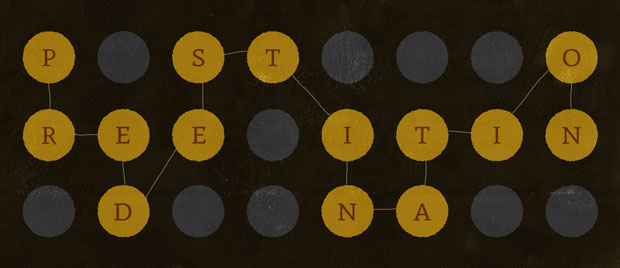
So what is it that God has predestined?
I have taught about predestination in numerous locations previously. Here is one example of how I answered a question from a reader about predestination.
What Did God Predestine?
I’ll be as blunt and straightforward as I know how: I do not believe that God predestines some people to go to heaven.
I definitely do not believe in double predestination. If you don’t know what double predestination is, it is the view that God predestines some people to go to heaven and predestines others to go to hell. Although I used to believe this (that’s part of the “hyper” in hyper Calvinism), but no longer.
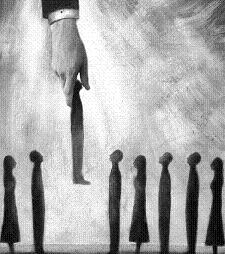 I believe that predestination does not refer to God’s choice of which people get to go to heaven, but refers instead to God’s determination to bring into glory all those who receive eternal life by faith in Jesus. In other words, predestination teaches us about who gets glorified, not who gets justified.
I believe that predestination does not refer to God’s choice of which people get to go to heaven, but refers instead to God’s determination to bring into glory all those who receive eternal life by faith in Jesus. In other words, predestination teaches us about who gets glorified, not who gets justified.
God’s predetermined (this is a synonym for predestination) plan was that He would bring into glory everyone who believed in Jesus for eternal life, that is, for justification. All who are justified will be glorified. As such, there is absolutely nothing in predestination about God’s choice of which people will get justified and which people will not. Predestination has nothing to do with that, and it is a categorical mistake to think it does.
To put it another way, predestination is about the destiny of believers (all will be glorified), not about the destiny of unbelievers (some will get justified and some will get damned).
Or to put it another way again, discussion about God’s predestination should not fall under the category of justification, but under the categories of sanctification and glorification. Predestination is a discipleship issue; not an evangelism issue.
Romans 8:28-30 and Predestination
Two of the key passages about predestination are Romans 8:29-30 and Ephesians 1:4-11. In both cases, Paul is pretty clear that predestination is about God bringing people to be conformed to the image of His Son (Romans 8:29), and that election and predestination are most properly understood in connection with being made holy and blameless before God (Ephesians 1:4-5).
God does not choose some to be in Christ while passing over the rest. No, God chooses, elects, predestines, predetermines, decides, foreordains, commits Himself to make sure that every person who believes in Jesus for eternal life, will finally and ultimately be glorified into the image and likeness of Jesus Christ.
So predestination of the saints is about God’s commitment to the preservation of the saints.
This is why no one can snatch us out of the Father’s hand (John 10:29), why nothing can separate us from the love of God (Romans 8:38-39), and why God has given us the Holy Spirit as a promise and guarantee of our inheritance (Ephesians 1:13-14).
Predestination is a controversial topic, but it need not be. The Bible teaches that predestination is about our glorification and sanctification; not about justification. Therefore, if we fight about predestination, we are not living according to what we were predestined for, namely, to be conformed to the image of Jesus Christ.
Predestination and Romans 8:28-30
I taught about this previously in a study on Romans 8:28-30 and the Golden Chain of Salvation, which you can go read for yourself. But here are a few key points from what I wrote there:
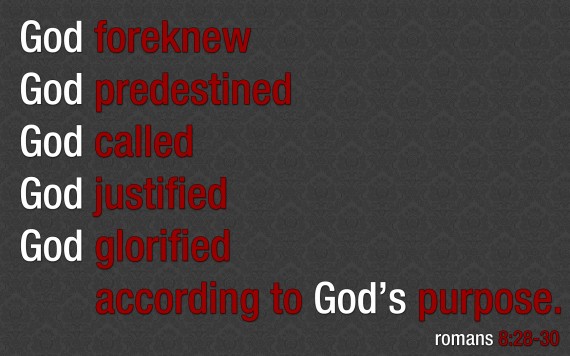
In Romans 8:28-30, Paul is emphasizing God’s role while ignoring man’s role, but this does not mean that mankind has no role.
Note that key elements of the process of redemption are left out, such as faith and sanctification. Why? Because these are partly the responsibility of humans. Paul does not mention these other elements of redemption, because he is focusing solely on God’s role in redemption.
These verses in Romans 8:28-30 are sort of like the passage in Genesis 15 where God performs a “cutting of the covenant” ceremony with Abraham, but God walks through the severed animals all by Himself. Usually, both parties of the covenant walked through the blood of the divided animals together, essentially saying, “If I break the terms of this covenant, may I become like one of these animals.” But in Genesis 15, God puts Abraham to sleep and walks through the animals alone. He is saying that the terms of the covenant are unconditional. That Abraham and his descendants don’t have to do anything for God to fulfil the terms of the covenant.
This is exactly what Romans 8:28-20 is saying as well. All the terms mentioned in these verses are aspects of redemption that God takes care of all by Himself. They require no human involvement.
In the overall scheme of redemption, God alone is the one who foreknows what He will do, takes steps to make sure it happens, calls believers to a greater purpose in service to Him, justifies those who believe, and glorifies for eternity all whom He justified.
In Romans 8:28-30, Paul is not talking about an eternal decree from eternity past about to whom He would give eternal life, but rather, God’s plan from eternity past to bring those who believe in Jesus into conformity to the image of Jesus Christ, which does not fully occur until glorification (cf. Eph 1:4; 4:1; 5:27; Col 1:22-23).
In Romans 8:28-30, Paul is saying nothing about God’s predestination of some to eternal life.
Instead, Paul is saying that God decided in eternity past to make sure that everyone and anyone who joins His family by faith will finally and ultimately be brought into conformity to Jesus Christ at their glorification.
Foreknowledge is not God’s plan from all eternity about whom to give eternal life. It is simply God’s plan about what to do with those who believed.
In the Context of Romans 8:28-30, Paul is writing to Christians who are facing severe testing and trials as a result of their faith in Jesus (cf. Romans 8:17-18).
But Paul wants to encourage his readers by telling them that the suffering they face will result in glory, and that absolutely nothing can separate them from God’s love or God’s purpose in their lives (Romans 8:31-39).
Many of the people to whom he is writing (just like many people today), were struggling with feelings of inadequacy, guilt, failure, fear, and doubt. Paul wanted them to know that God knew all about these things from eternity past, and it didn’t stop Him from initiating His plan to rescue and redeem the world, and since God predestined such a plan, He will take care of everything necessary to bring it to completion, which will result in our glorification (cf. Romans 8:31-39).
Paul’s point in writing Romans 8:28-30 is to encourage Christians that no matter what happens to them, God is with them, will not abandon them, and just as He has had them in mind since before the foundation of the world, He will not abandon them to the trials and testing they are facing.
If God is the only one who could bring a charge against them, but He will not do so, and instead, delivered His own Son up for us all (Romans 8:31-34), then we can be sure that absolutely nothing will separate us from the love of God (Romans 8:35-39). If God is for us, who can condemn us? Jesus could. But rather than condemn us, Jesus intercedes for us!
This is the beautiful truth of predestination. It is a promise of safety and security in the arms of God. It is a promise of eternal security. It is a promise of final and ultimate glorification with God and the saints in eternity. Predestination is the promise of God to His children that He will bring them through to the end. He promises to make us holy, and He promises to make us heirs. And that which God promises, He is able to keep. We are eternally secure in the hands of God because of his election and predestination.
So what is predestination? It is not God’s choice in eternity past about who would receive eternal life and who would not. Rather, it is God’s plan from eternity past to make sure that everyone who believed in Jesus for eternal life, would keep that eternal life forever and would finally and ultimately be glorified with Him in eternity. Predestination is God’s promise to you that no matter what you have gone through, no matter what you are going through, no matter what you have done or will do, God will always love you, accept you, forgive you, and is always at work to bring you into eternity to be with Him forever.
That’s an encouraging truth, right? And we will see more of this encouraging truth when we look at the rest of Ephesians 1:5 next time, as well as Ephesians 1:6. That study will focus on the word adoption in Ephesians 1:5 as further proof that predestination is not to eternal life, but rather concerns God’s promise that those who are justified will be glorified in Jesus Christ.






 Do you see the logic here? If we are going to say Jesus was elect, and that this means that He was chosen by God to perform a certain task, then the same meaning of election should apply to others also. And indeed, this is exactly what Scripture reveals when we study all the other passages on election in Scripture.
Do you see the logic here? If we are going to say Jesus was elect, and that this means that He was chosen by God to perform a certain task, then the same meaning of election should apply to others also. And indeed, this is exactly what Scripture reveals when we study all the other passages on election in Scripture.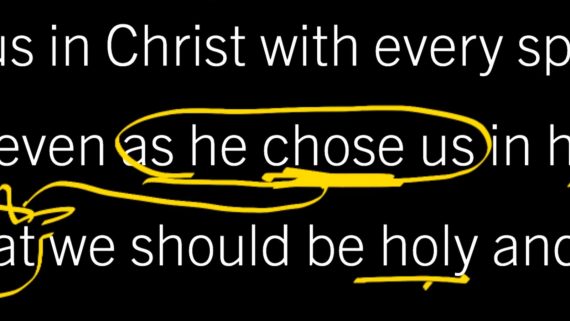
 Well, that is what the rest of Ephesians is all about.
Well, that is what the rest of Ephesians is all about.

 I have addressed similar questions about
I have addressed similar questions about 
 Only believers are “in Christ.” If you have believed in Jesus for eternal life, then you are in Christ. This means that only believers have every spiritual blessing. Unbelievers don’t have every spiritual blessing because they are in Christ.
Only believers are “in Christ.” If you have believed in Jesus for eternal life, then you are in Christ. This means that only believers have every spiritual blessing. Unbelievers don’t have every spiritual blessing because they are in Christ.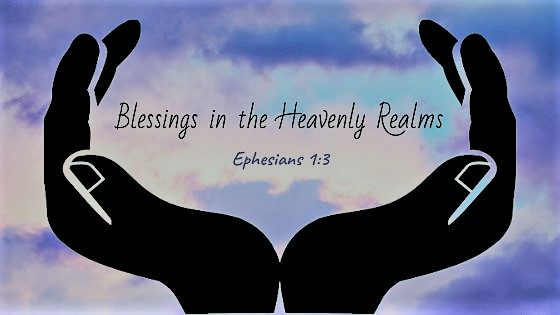

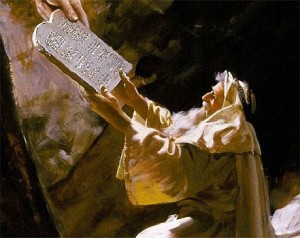 When people reject a relationship with God, the only way for God to (1) Guide their behavior and (2) Teach them that a relationship is best, is to give them law. God knew, and Moses knew, that law would only make things worse, but it was given nonetheless to teach the Israelites (and us) a lesson.
When people reject a relationship with God, the only way for God to (1) Guide their behavior and (2) Teach them that a relationship is best, is to give them law. God knew, and Moses knew, that law would only make things worse, but it was given nonetheless to teach the Israelites (and us) a lesson.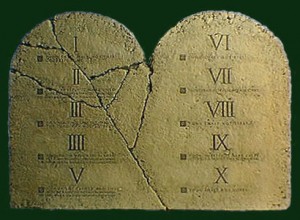 Israelites: Yay! Now we know what to do! Uh, wait (Leviticus 17). We can’t keep these very well. They don’t answer all of the questions or speak to every situation we encounter. And the rivalry and violence keeps increasing. I know what our problem is … we need more laws, sacrifices, and religion!
Israelites: Yay! Now we know what to do! Uh, wait (Leviticus 17). We can’t keep these very well. They don’t answer all of the questions or speak to every situation we encounter. And the rivalry and violence keeps increasing. I know what our problem is … we need more laws, sacrifices, and religion!
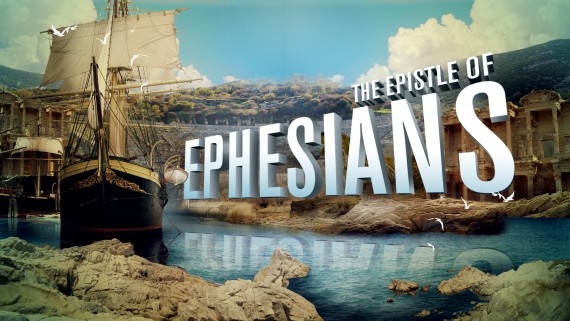
 First, he gives two blessings for believers. Grace and peace. This is the typical way that Paul starts almost all of his letters, but should not be ignored. Paul understood grace (Acts 9:1-18; 1 Tim 1:15-16). Paul, the chief of sinners, was chosen by God to share God’s grace to the Gentiles. Paul was the apostle of grace. He was the most qualified person to speak on grace.
First, he gives two blessings for believers. Grace and peace. This is the typical way that Paul starts almost all of his letters, but should not be ignored. Paul understood grace (Acts 9:1-18; 1 Tim 1:15-16). Paul, the chief of sinners, was chosen by God to share God’s grace to the Gentiles. Paul was the apostle of grace. He was the most qualified person to speak on grace.
 But Jesus showed us that we can pray directly to God, and we can talk to Him as our Father. Paul is hinting at the same thing here. God is our Father, and as our Father, He loves us and cares for us, and only gives good gifts to us.
But Jesus showed us that we can pray directly to God, and we can talk to Him as our Father. Paul is hinting at the same thing here. God is our Father, and as our Father, He loves us and cares for us, and only gives good gifts to us.
 First, he is an apostle of Christ Jesus. An apostle is one who is sent by God with a message to those who have not yet heard the good news. It should be noted that there are no more apostles today. We have all probably heard of apostolic churches, and men or women claiming to be apostles of Christ. The Catholic Church claims that the authority of the Pope is based on apostolic succession.
First, he is an apostle of Christ Jesus. An apostle is one who is sent by God with a message to those who have not yet heard the good news. It should be noted that there are no more apostles today. We have all probably heard of apostolic churches, and men or women claiming to be apostles of Christ. The Catholic Church claims that the authority of the Pope is based on apostolic succession.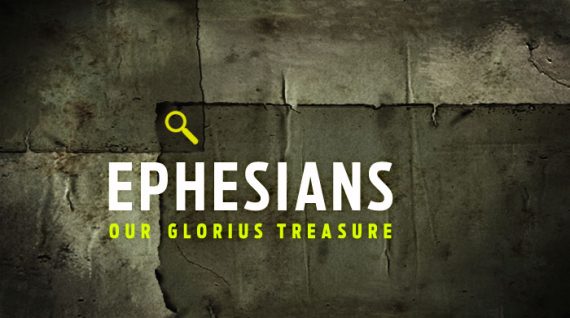
 A while back as they were considering sainting Mother Theresa, I read this about her:
A while back as they were considering sainting Mother Theresa, I read this about her: So, let me ask a question. Does this mean that there can be unfaithful saints? Can there be saints who do not act like saints? Can there be “sinning saints”? Saints who fail to live in obedience to God—but who are nevertheless still saints?
So, let me ask a question. Does this mean that there can be unfaithful saints? Can there be saints who do not act like saints? Can there be “sinning saints”? Saints who fail to live in obedience to God—but who are nevertheless still saints?
 Listen to the podcast for the full discussion, but the bottom line truth is that whenever you think about criticizing a political opponent or person for their actions, first consider whether you would say the same thing if someone from your own political party had done the same thing. (Chances are, someone from your own political viewpoint HAS done the same thing… when that happened, what did you say or do?) If you would be silent, then remain silent now. If you spoke out, then feel free to speak out now.
Listen to the podcast for the full discussion, but the bottom line truth is that whenever you think about criticizing a political opponent or person for their actions, first consider whether you would say the same thing if someone from your own political party had done the same thing. (Chances are, someone from your own political viewpoint HAS done the same thing… when that happened, what did you say or do?) If you would be silent, then remain silent now. If you spoke out, then feel free to speak out now.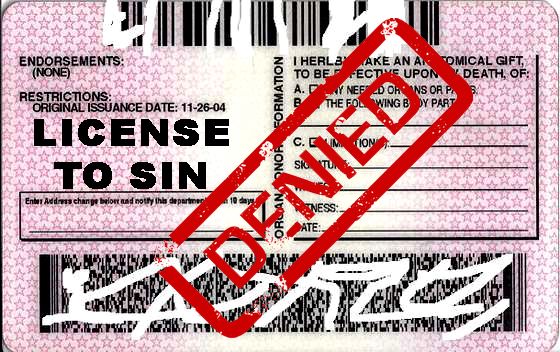
 Do you see the difference? In the teaching of eternal security, free grace is not a license to sin but is rather a warning against sin. We say “Yes, grace allows you to sin all you want, but when you really understand grace and sin, why would you want to?” Grace allows you to sin all you want just like owning a knife allows you to stab it into your leg. Yes, you can do this if you want to, but why would you want to?
Do you see the difference? In the teaching of eternal security, free grace is not a license to sin but is rather a warning against sin. We say “Yes, grace allows you to sin all you want, but when you really understand grace and sin, why would you want to?” Grace allows you to sin all you want just like owning a knife allows you to stab it into your leg. Yes, you can do this if you want to, but why would you want to?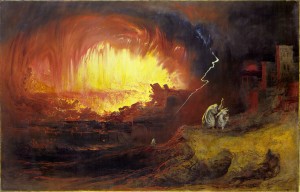 The first example of the Israelites in the wilderness clearly refers to physical death, rather than to eternal torment in hell. The example of the angels is more difficult, since we are not quite sure what event Jude has in mind. But many believe he is referring to the “sons of God” who had sexual relations with the daughters of men in Genesis 6, and were imprisoned as a result. Yet notice that while these angels are imprisoned in chains and darkness, they are not being tortured with fire. In fact, darkness and fire are mutually exclusive. And since angels are immortal, they cannot be killed. Therefore, they were imprisoned and are awaiting judgment.
The first example of the Israelites in the wilderness clearly refers to physical death, rather than to eternal torment in hell. The example of the angels is more difficult, since we are not quite sure what event Jude has in mind. But many believe he is referring to the “sons of God” who had sexual relations with the daughters of men in Genesis 6, and were imprisoned as a result. Yet notice that while these angels are imprisoned in chains and darkness, they are not being tortured with fire. In fact, darkness and fire are mutually exclusive. And since angels are immortal, they cannot be killed. Therefore, they were imprisoned and are awaiting judgment.
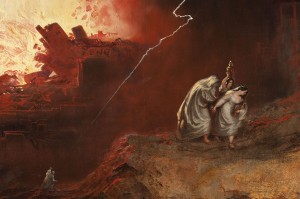 According to historical accounts from the New Testament era, the Dead Sea was also known as the Lake of Fire, where there were frequent bouts of flame and smoke, burning sulphur, and where everything that went through it collected a tarnish of oily soot and grime (cf. Gen 19:24-28; Deut 29:23; Isa 34:9; Jer 49:17-18; Rev 20:10). In the days of Jesus, the valley was still smoking and smoldering, and they assumed it would go on that way forever. This is what Jude has in mind when he speaks of the cities suffering the vengeance of eternal fire. It is not hell, but is the ongoing, physical destruction and devastation that came upon those cities.
According to historical accounts from the New Testament era, the Dead Sea was also known as the Lake of Fire, where there were frequent bouts of flame and smoke, burning sulphur, and where everything that went through it collected a tarnish of oily soot and grime (cf. Gen 19:24-28; Deut 29:23; Isa 34:9; Jer 49:17-18; Rev 20:10). In the days of Jesus, the valley was still smoking and smoldering, and they assumed it would go on that way forever. This is what Jude has in mind when he speaks of the cities suffering the vengeance of eternal fire. It is not hell, but is the ongoing, physical destruction and devastation that came upon those cities.

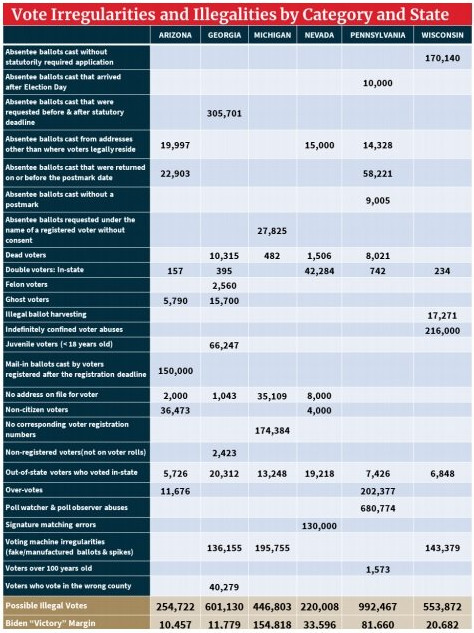

 The kingdom of God is the rule and reign of God in our lives on this earth. When we enter into the kingdom of God, we enter into an experience of the life God wants for us here and now, during our lives, on this earth. Yes, our experience of the kingdom of God will continue on through eternity, but it can begin now, and it is based almost entirely on how we follow the teachings and example of Jesus in our daily lives. So entering the kingdom of heaven is not the same thing as going to heaven when we die.
The kingdom of God is the rule and reign of God in our lives on this earth. When we enter into the kingdom of God, we enter into an experience of the life God wants for us here and now, during our lives, on this earth. Yes, our experience of the kingdom of God will continue on through eternity, but it can begin now, and it is based almost entirely on how we follow the teachings and example of Jesus in our daily lives. So entering the kingdom of heaven is not the same thing as going to heaven when we die.

 Have you heard of cryptocurrency? They’re in the news a lot this week, so I decided to talk a a bit about them. I explain what they are, why they’re important and gainin widespread acceptance, and how to get some if you want. Ten years ago, Bitcoin was $1. It hit $48,000 today. Dogecoin is the most entertaining cryptocurrency, which causes many to believe it will be the most successful. It currently sits at $.07, and many believe it will hit $1 this year. Where will it be in ten years?
Have you heard of cryptocurrency? They’re in the news a lot this week, so I decided to talk a a bit about them. I explain what they are, why they’re important and gainin widespread acceptance, and how to get some if you want. Ten years ago, Bitcoin was $1. It hit $48,000 today. Dogecoin is the most entertaining cryptocurrency, which causes many to believe it will be the most successful. It currently sits at $.07, and many believe it will hit $1 this year. Where will it be in ten years? I have written a lot about this before. There’s a whole section on tithing in my book (#AmazonAdLink)
I have written a lot about this before. There’s a whole section on tithing in my book (#AmazonAdLink) 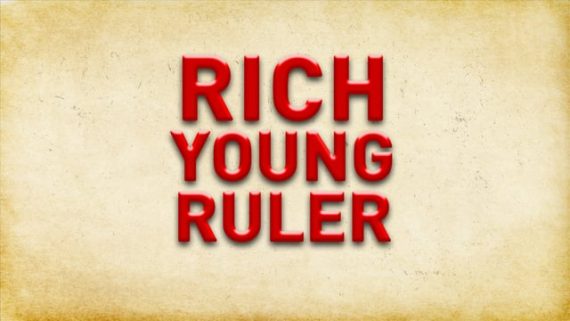
 The context of these passages provides numerous lines of evidence to show that Jesus is talking about experiencing eternal life in our present life through the rule and reign of God, rather than about how to receive eternal life and go to heaven when we die.
The context of these passages provides numerous lines of evidence to show that Jesus is talking about experiencing eternal life in our present life through the rule and reign of God, rather than about how to receive eternal life and go to heaven when we die. All of this is about entering into the kingdom of God (Mark 10:23-25; Luke 18:24-25), which is shorthand for entering into the experience of the rule and reign of God in our lives here and now on this earth.
All of this is about entering into the kingdom of God (Mark 10:23-25; Luke 18:24-25), which is shorthand for entering into the experience of the rule and reign of God in our lives here and now on this earth. “Well done!” Jesus would say. “Only one thing is left. Resign as pastor. Stop selling books. Quit preaching. Throw out all your gospel tracts and Christian clothes. Stop tithing to the church. Put your Bible on a shelf for a while, and go have a beer at the local pub. Then come follow Me and we’ll see what’s next.” But the young pastor would go away, thinking that Jesus was a false teacher, for the young man had it all figured out.
“Well done!” Jesus would say. “Only one thing is left. Resign as pastor. Stop selling books. Quit preaching. Throw out all your gospel tracts and Christian clothes. Stop tithing to the church. Put your Bible on a shelf for a while, and go have a beer at the local pub. Then come follow Me and we’ll see what’s next.” But the young pastor would go away, thinking that Jesus was a false teacher, for the young man had it all figured out.
